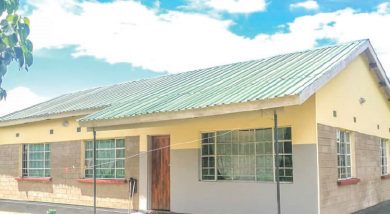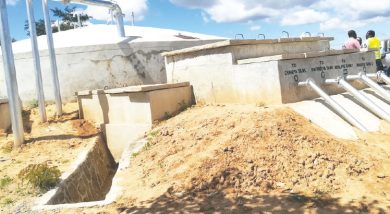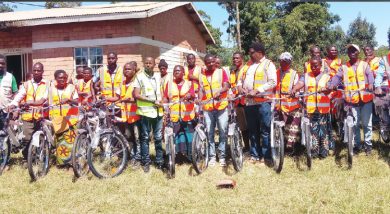DPP suspension splits opinions
The suspension of Director of Public Prosecutions (DPP) Steven Kayuni has split opinions of legal minds with some faulting Minister of Justice Titus Mvalo’s decision, arguing that the law only provides for removal.
But the minister yesterday said Kayuni is suspended until the outcome of an inquiry. Effectively, he said, all functions of the DPP’s office will stop until further notice.
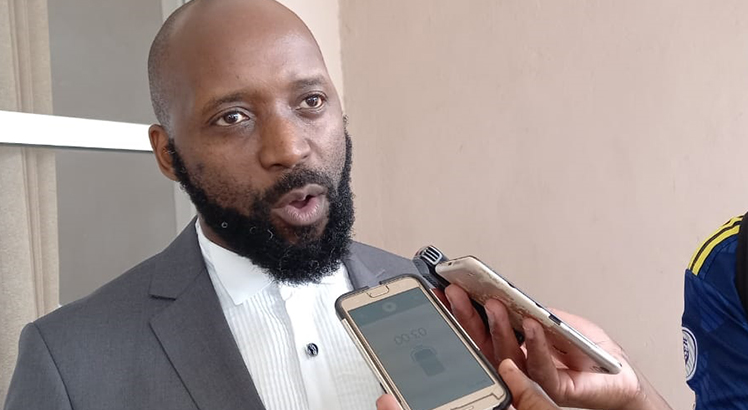
Malawi Law Society (MLS) president Patrick Mpaka, in a written response last evening, said there is no direct authority to suspend holder of the office of DPP, but there is ultimate authority to remove him or her under Section 102 of the Constitution.
However, he said that the law should be understood within the broader constitutional tenets and due processes for accountability in Sections 12, 43 and 100 of the Constitution to include the power to suspend before removal or reinstatement after due process where grounds for removal emerge.
Mpaka said: “Because of the constitutional gap created by the suspension, what we would expect and recommend is an urgent due process under Section 100(2)(a) and 43 of the Constitution to hear the director’s side of the story and decide whether to keep him or not in that office.
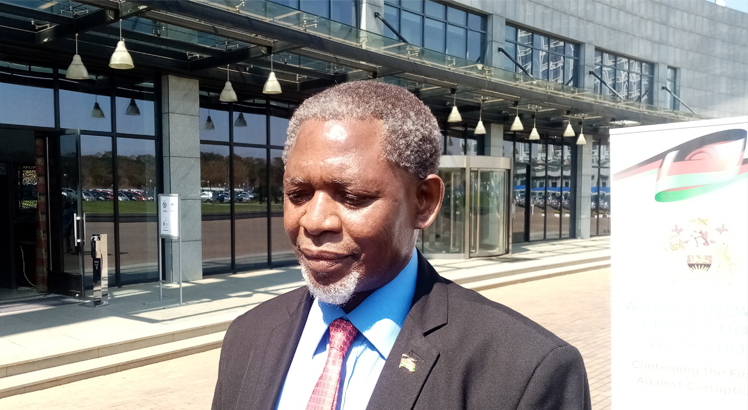
“We, therefore, expect the Legal Affairs Committee [of Parliament] to be interested and to be taking action given that the Executive seems uncomfortable with the Director of Public Prosecutions as evidenced by the suspension.”
In an interview yesterday, private practice lawyer George Kadzipatike argued that the Constitution provides for removal rather than suspension of the DPP on purpose and that the office was intended to be filled at all times.
He said: “The DPP is head of criminal law in the country. His suspension means that all those law enforcement agents who get directions from that office are stranded. It is clear, therefore, that the suspension of the DPP will create a criminal law enforcement crisis in the country.
“Officers who get directions from that office will be stranded. The lawyers from the DPP chambers will be acting without instructions from the DPP and you may challenge their appearance before the courts.”
Kadzipatike said t h e suspension of the DPP was not only unconstitutional, but also a political decision made to please the donor community. He insisted the right decision for the country was to either rescind the suspension or replace Kayuni.
“For the President to fire Kayuni, he must have one or more of the reasons for removal of the DPP provided under Section 102 of the Constitution. Once another person is appointed to that position, the appointment will have to be confirmed by Public Appointments Committee of Parliament,” he said.
Mulanje West legislator Yusuf Nthenda, who is also a lawyer, wondered why authorities decided to forgo the dictates of the Constitution.
He observed that even the inquiry will take long, thereby eventually paralysing the justice system.
Nthenda argued: “At the moment, it means we don’t have the office of the DPP. This means that all prosecutorial powers are now redundant because there is no one who can take them up. Even where you have other institutions that get consent from the DPP cannot get them. There is a vacuum.
“The minister and the President must ensure that the position is fi l l ed as soon as possible to avoid inconveniencing institutions that rely on the DPP.”
But in an interview yesterday, Mvalo said the office of the DPP was an important constitutional office which cannot be left without a functioning occupant for a long time.
He said: “In terms of prosecution, they will continue because there are still lawyers under that department, but those functions that require the DPP to exercise constitutional powers, somebody cannot do because the Constitution is very clear that the powers vested in the DPP shall be exercised only by himself nobody else.
“So those constitutional powers will wait until outcome of the inquiry and we have a substantive DPP in that office. On whether this will create chaos or not, that depends on how quickly the inquiry takes.”
On whether there were considerations of filling the position, Mvalo insisted that Kayuni remains the holder of the office until the outcome of the inquiry.
He said: “He [Kayuni] is still in office, but cannot perform duties because he is on suspension. We think that after the outcome of the inquiry, the office will be filled either by himself or somebody else depending on the outcome of the inquiry.”
Under Section 92 (2) of the Constitution, the DPP has power in any criminal case, can institute and undertake criminal proceedings against any person; take over and continue any criminal proceedings but also discontinue at any stage before judgement is delivered in any criminal proceedings.
Kayuni was suspended on Tuesday after his complaint to police led to the arrest of Anti-Corruption Bureau director general Martha Chizuma, sparking public outrage, including the donor community.
The President is mandated to appoint the DPP, who is then confirmed by the Public Appointments Committee of Parliament subject to satisfying requirements as competence and capacity to pursue prosecutions independently.
Under Section 102 (2), the DPP may be removed from the office if the President is satisfied that the person holding the office is “(a) incompetent in the exercise of his or her duties; (b) is compromised in the exercise of his or her duties to the extent that his or her ability to exercise his or her functions impartially is in serious question; (c) is otherwise incapacitated.”


